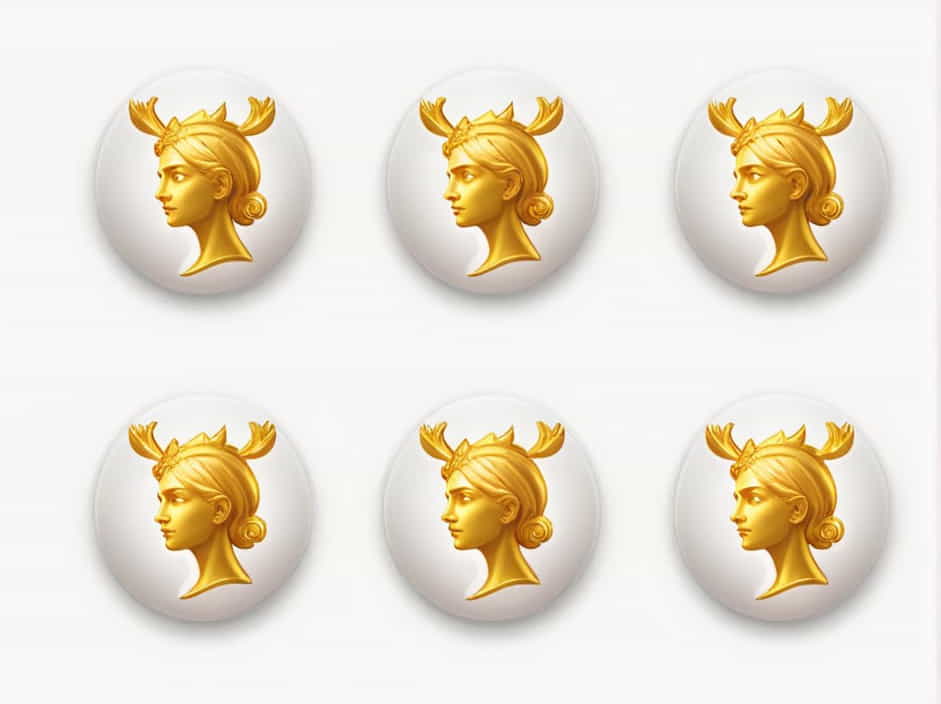In Greek mythology, Leto is one of the most important yet often overlooked goddesses. She is best known as the mother of Apollo and Artemis, two of the most powerful Olympian gods. Leto’s story is one of endurance, persecution, and divine strength.
This topic explores the myth of Leto, her role as the mother of twin deities, and her significance in ancient Greek religion.
Who Is Leto?
Leto is a Titaness, the daughter of Coeus and Phoebe, two of the primordial deities of Greek mythology. She was known for her gentleness, beauty, and grace.
Despite being a Titan, she was not involved in the war between the Titans and the Olympians. Instead, she became an important figure in the new divine order by giving birth to Apollo and Artemis.
The Love of Zeus and Leto
Leto became the lover of Zeus, the king of the gods. Their union resulted in her pregnancy with twins. However, this love affair angered Hera, the wife of Zeus, who was known for her jealousy and wrath.
Hera forbade Leto from giving birth on any land that was solid and secure, leaving her with nowhere to deliver her children. This led to one of the most famous struggles in Greek mythology-Leto’s desperate search for a place to give birth.
The Struggles of Leto
Hera’s Wrath and the Cursed Lands
Hera’s hatred for Leto knew no bounds. She ordered that:
- No land, island, or mainland could provide refuge to Leto.
- The earth itself refused to give her a place to rest.
- The monstrous serpent Python was sent to hunt her down.
Leto wandered across the Greek world, searching for a safe place to give birth.
Delos: The Sacred Island
Finally, the floating island of Delos offered her sanctuary. Since Delos was not attached to the earth, it did not fall under Hera’s curse.
- The island welcomed Leto out of pity.
- It promised to be the birthplace of Apollo and Artemis.
- In return, Leto blessed Delos, making it one of the holiest places in Greek religion.
The Birth of Apollo and Artemis
The Birth of Artemis
Leto first gave birth to Artemis, the goddess of the hunt, the wilderness, and the moon.
- Artemis was born without pain and immediately took on her divine duties.
- She helped Leto through the difficult birth of her twin brother.
The Birth of Apollo
Apollo, the god of the sun, music, and prophecy, was born next. However, his birth was far more difficult.
- Hera had kidnapped Eileithyia, the goddess of childbirth, to prevent Leto from delivering Apollo.
- The gods on Olympus intervened, offering gifts to Hera in exchange for Eileithyia’s release.
- Once freed, Eileithyia rushed to Delos, and Leto finally gave birth to Apollo.
With his birth, Delos became a sacred island, forever linked to Apollo.
Leto’s Protection of Her Children
Despite giving birth to powerful gods, Leto’s struggles did not end. She still faced threats and challenges while raising her divine children.
The Slaying of Python
Python, the giant serpent sent by Hera to kill Leto, continued to hunt her even after Apollo’s birth. However, the newborn god grew rapidly and, within days, was strong enough to take revenge.
- Apollo traveled to Delphi, where Python lived.
- He slayed the serpent with his golden arrows, fulfilling his divine destiny.
- The site of Python’s death became the location of the Oracle of Delphi, one of the most sacred places in Greece.
The Attack of Tityos
Another attempt on Leto’s life came from Tityos, a giant sent by Hera.
- Tityos tried to kidnap and harm Leto.
- Apollo and Artemis killed him instantly, showing their loyalty and power.
- As punishment, Tityos was condemned to eternal torment in Tartarus, where vultures fed on his liver for eternity.
The Insult of Niobe
One of the most famous myths about Leto involves Niobe, the Queen of Thebes.
- Niobe mocked Leto, claiming she was superior because she had more children.
- Enraged by the insult, Apollo and Artemis punished Niobe by slaughtering all her children.
- The devastated Niobe fled and was turned into a weeping rock, symbolizing eternal sorrow.
This myth highlights Leto’s divine honor and the power of her children.
Leto’s Role in Greek Religion
Leto was not just a mythological figure; she was also an important goddess worshiped across Greece.
Temples and Worship
- Delos was the center of Leto’s worship, as it was her sacred birthplace.
- The Letoon in Lycia (modern Turkey) was another major sanctuary dedicated to her.
- She was honored with festivals, prayers, and offerings.
Symbolism and Legacy
Leto represented:
- Motherhood and protection, as she fiercely defended her children.
- Endurance and strength, having survived Hera’s persecution.
- Divine justice, as seen in the fate of her enemies.
She was revered not just for her beauty and grace but for her unshakable devotion to her children.
The story of Leto, the mother of Apollo and Artemis, is one of perseverance, strength, and divine favor. Despite Hera’s relentless persecution, she triumphed, giving birth to two of the most powerful gods in Greek mythology.
Her children, Apollo and Artemis, became Olympian deities, forever honoring their mother’s struggles. Leto’s legacy remains strong in Greek mythology, symbolizing maternal devotion, resilience, and divine justice.
